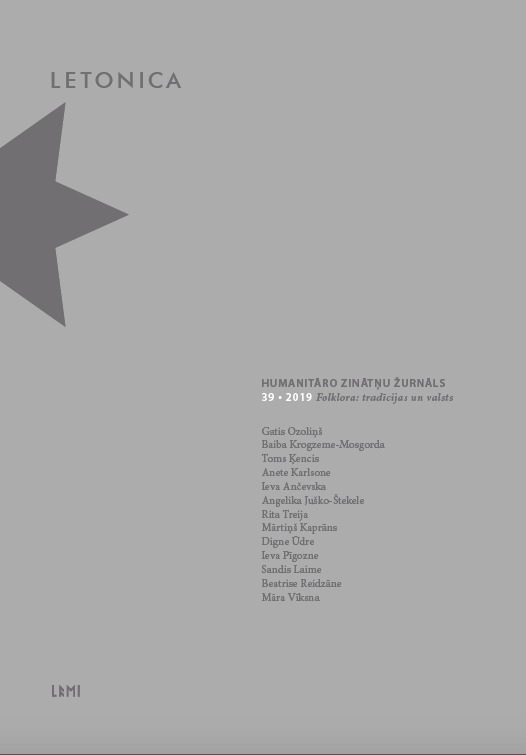Tradicionālisms un nedrošības valoda Latvijas publiskajā telpā
Traditionalism and the Language of Insecurity in Latvian Public Sphere
Author(s): Mārtiņš KaprānsSubject(s): Semiotics / Semiology, Social Philosophy, Communication studies, Social history, Semantics, Contemporary Philosophy, Political behavior, Political psychology, Politics and communication, Crowd Psychology: Mass phenomena and political interactions, Nationalism Studies, Sociology of Culture, Present Times (2010 - today), Sociology of Politics
Published by: Latvijas Universitātes Literatūras, folkloras un mākslas institūts
Keywords: ontological security; traditionalists; risk society; public discourse;
Summary/Abstract: This essay focuses on the discourse of insecurity that has gradually become salient in Latvian public sphere. The discourse of insecurity in Latvia is created by individuals with different experience and motifs; they use different conceptual sources to express ideas. A sense of insecurity is objectified with geopolitical, civilizational, and psychoanalytical categories. The European refugee crises and discussions on the so called Istanbul Convention has tempered this discourse over the past years by introducing more specific themes and by setting more particular basis for ideological positioning. Analytically, the essay reflects on the grammar or structural elements of insecurity discourse that define this discourse as a distinct phenomenon. Simultaneously, this analysis also intends to explain the origins of such discourse and to reveal its meaning in a broader context. Thus the essay has two parts. The first part examines the referents of Latvia’s insecurity discourse, i. e. what this discourse is attributed to and what it problematizes. The second part outlines various conceptual layers that might facilitate the understanding of the advent and persistence of insecurity discourse. In particular, the essay demonstrates why and how liberalism has become the centrepiece of the insecurity discourse. It also illuminates solutions that the actors of such discourse provide in order to avoid the societal atomization and disappearance of Latvia as a national state. The essay invites to look at the genealogy of the insecurity discourse from the ontological security perspective. In light of this perspective, the central argument is that the actors of Latvia’s insecurity discourse and their opponents are united within the framework of risk society. Namely, both proponents and opponents are mobilized through risk awareness with respect to existential threats. However, different types of risks are problematized in both discourses – the disintegration of collective identity vs. catastrophic risks – that lead to diverging opinion on what the ultimate basis of societal solidarity is.
Journal: Letonica
- Issue Year: 2019
- Issue No: 39
- Page Range: 136-148
- Page Count: 13
- Language: Latvian

